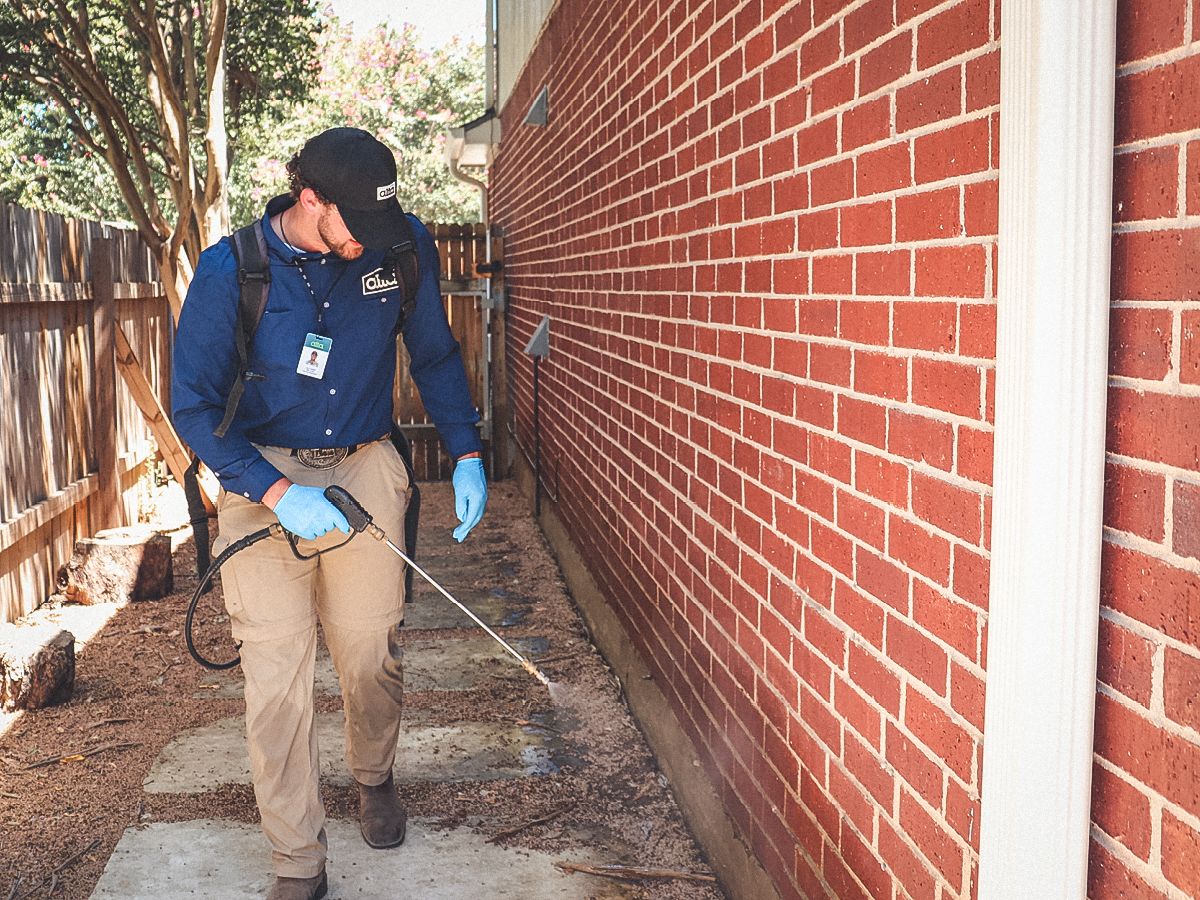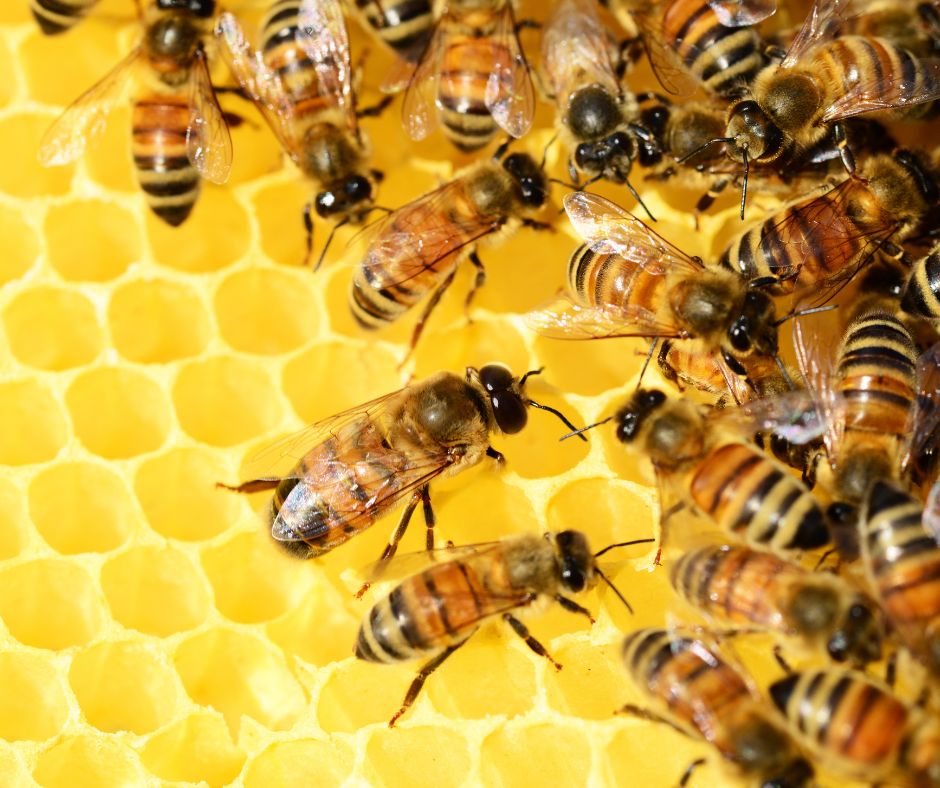Reveal the Value of Pest Control in Preserving a Healthy Setting and Therapy Strategies

The Duty of Insects in Ecological Communities
Insects, usually seen exclusively as nuisances, play a diverse duty in ecosystems that is crucial for keeping ecological balance. They add significantly to different environmental procedures, consisting of pollination, nutrient cycling, and bug control. Several insect varieties, such as bees and butterflies, are important pollinators for a large array of plants, which in turn sustains biodiversity and food manufacturing.
In addition, pests function as prey for numerous predators, producing an important web link in food internet. This connection makes sure the survival of numerous varieties and assists control populaces within environments (Termite treatment Port Charlotte). Decomposer bugs, such as specific beetles and fungi, are instrumental in damaging down natural matter, thus enriching dirt and promoting vitamins and mineral recycling.
Alternatively, while bugs can be useful, their overpopulation or invasion into non-native settings might disrupt these ecological features. This intricacy underscores the importance of recognizing bug dynamics, as reliable bug administration strategies have to think about both their ecological duties and prospective influence on human tasks. Stabilizing pest presence while decreasing damage is essential for maintaining the stability of ecosystems and making certain agricultural performance.
Health And Wellness Risks Related To Pests
The visibility of insects in numerous environments expands beyond their eco-friendly roles, as they likewise pose considerable health dangers to pets and humans. Lots of pests, including pests, rodents, and bloodsuckers, are carriers of illness that can have significant health and wellness implications. Rodents are recognized to send hantavirus and leptospirosis, both of which can lead to severe respiratory and renal problems, specifically.
Pests such as mosquitoes and ticks are notorious for spreading vector-borne illness like jungle fever, dengue high temperature, and Lyme condition. These diseases can lead to high morbidity and mortality rates, especially in at risk populations. Furthermore, parasites like cockroaches and vermins can aggravate allergic reactions and bronchial asthma, adding to respiratory troubles in people, especially those with pre-existing conditions.
Moreover, the presence of pests can result in psychological stress and discomfort, impacting overall well-being. Contamination of food and surface areas by parasite droppings and continues to be can bring about foodborne ailments, highlighting the relevance of keeping hygienic problems. Recognizing the health and wellness risks associated with parasites is critical in identifying the requirement of effective pest monitoring methods to secure human and animal wellness.

Advantages of Reliable Pest Control
Effective pest control is essential for preserving a healthy and safe environment, as it consistently mitigates the numerous risks related to parasite problems. Among the key advantages of efficient insect management is the reduction of carcinogen. Parasites such as insects, rodents, and cockroaches are vectors for conditions that can impact both pets and human beings. By managing these populations, the likelihood of condition transmission is significantly lowered.
Additionally, efficient pest control safeguards property and frameworks from damage. Several bugs, like termites and carpenter ants, can create comprehensive structural damages that may call for expensive fixings. By proactively taking care of these house owners, companies and problems can secure their financial investments.
An additional considerable advantage is the renovation look at these guys of general top quality of life. A pest-free atmosphere adds to mental health and lowers anxiety linked with invasions. Reliable parasite control cultivates a more secure atmosphere for animals and kids, guaranteeing that homes remain sanctuaries free from harmful chemicals and disease-causing microorganisms.
Typical Insect Control Techniques

In the world of bug management, numerous techniques are used to fight problems efficiently. These strategies can be broadly classified into 3 major methods: social, mechanical, and chemical controls.
Cultural control entails modifying methods to reduce insect reproduction, establishment, and survival. This may consist of plant rotation, appropriate hygiene, and environment manipulation, which jointly develop an environment less for pest spreading.
Mechanical control uses physical techniques to get rid of bugs (Termite treatment Port Charlotte). Strategies such as vacuums, catches, and obstacles are typically utilized to directly remove pests from an area. This approach is specifically reliable for taking care of rats and bugs without the use of damaging chemicals
Chemical control includes the application of pesticides to take care of parasites. These materials can be classified into fungicides, insecticides, and herbicides, each targeting certain types of bugs. It is vital to utilize these chemicals sensibly, adhering to safety and security standards and policies to decrease prospective harm to non-target varieties and the atmosphere.
Each pest control strategy has its benefits and limitations, and frequently, an incorporated technique combining numerous techniques yields the very best lead to keeping a pest-free atmosphere.
Sustainable Bug Management Practices
Lasting insect monitoring methods incorporate a series of strategies created to reduce ecological impact while properly managing parasite populations. These techniques prioritize making use of eco friendly approaches over chemical pesticides, thus lowering the danger of injury to non-target species, including beneficial bugs, wild animals, and humans.
Integrated Bug this content Monitoring (IPM) is a foundation of lasting practices, integrating organic, social, mechanical, and chemical strategies to handle parasites. Biological control includes presenting all-natural predators or parasites to reduce parasite populaces. Cultural practices, such as crop turning and polyculture, interfere with pest life process and enhance ecological community strength.
Mechanical methods, such as traps or barriers, can successfully stop parasite accessibility without chemical treatment. Additionally, maintaining healthy communities with proper dirt management, plant health, and biodiversity can naturally mitigate pest issues.
Education and awareness are vital parts, encouraging people and areas to acknowledge insect risks early and execute preventive measures. Termite treatment Port Charlotte. By fostering an all natural strategy that stabilizes insect control with ecological integrity, lasting bug administration methods not only shield plants and structures however also add to a much healthier atmosphere for future generations
Conclusion

Comprehending the health threats associated with parasites is important in recognizing the requirement of effective bug management methods to safeguard animal and human health.
Efficient pest control is necessary for maintaining a healthy and secure environment, as it regularly minimizes the various threats linked with insect problems.Integrated Pest Administration (IPM) is a keystone of lasting practices, integrating organic, cultural, mechanical, and chemical strategies to handle parasites. By understanding the function of bugs, identifying associated health and wellness threats, and using diverse treatment methods, a lasting technique to pest monitoring can be achieved. Integrated Insect Administration (IPM) highlights an all natural technique that mitigates harm to useful microorganisms while successfully regulating parasite populaces.